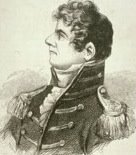From the Sunday readings
Of course, there is great gain in godliness combined with contentment; for we brought nothing into the world, so that we can take nothing out of it; but if we have food and clothing, we will be content with these. But those who want to be rich fall into temptation and are trapped by many senseless and harmful desires that plunge people into ruin and destruction. For the love of money is a root of all kinds of evil, and in their eagerness to be rich some have wandered away from the faith and pierced themselves with many pains.
But as for you, man of God, shun all this; pursue righteousness, godliness, faith, love, endurance, gentleness. Fight the good fight of the faith; take hold of the eternal life, to which you were called and for which you made the good confession in the presence of many witnesses. In the presence of God, who gives life to all things, and of Christ Jesus, who in his testimony before Pon'tius Pilate made the good confession, I charge you to keep the commandment without spot or blame until the manifestation of our Lord Jesus Christ, which he will bring about at the right time--he who is the blessed and only Sovereign, the King of kings and Lord of lords. It is he alone who has immortality and dwells in unapproachable light, whom no one has ever seen or can see; to him be honor and eternal dominion. Amen.
As for those who in the present age are rich, command them not to be haughty, or to set their hopes on the uncertainty of riches, but rather on God who richly provides us with everything for our enjoyment. They are to do good, to be rich in good works, generous, and ready to share, thus storing up for themselves the treasure of a good foundation for the future, so that they may take hold of the life that really is life.
Throughout this letter to his protege Timothy, whom he dispatched to Ephesus to strengthen and solidify, Paul elaborates points on Christian leadership and community. Paul offers specific advice to church leaders here. His language is unequivocal and has served as a model for generations: pursue righteousness, godliness, faith, love, endurance, and gentleness. Do not seek or use leadership in the church as a way to enrich yourself, satisfy your pride, or grow in arrogance. Do so because the church is a gift, of fellowship, grace, and love, where our own gifts must be used to encourage our faith and spread His word. Paul's urging to endurance brings to mind the challenge facing an athlete or warrior, and indeed, he urges us to "fight the good fight." But the challenge he urges us towards is to seize the light and way offered to us free of charge by "the blessed and only Sovereign, the King of kings and Lord of lords," who in His time with us on earth, was not a warrior in the way many expected or wanted, but the penultimate servant, who despite His infinite power and strength, emptied Himself of everything. He never once lifted His hands in anger or harm, but always in love, and not once turned away a single one who called on Him for help. It is this same One who later called Paul to service, transforming him from a notorious persecutor of Christians, blasphemer, and man of violence, into the man able to lead others into lives of faith. He blinded Paul with the light of His truth on the road to Damascus, and for the rest of his life, this light illuminated everything Paul did.

















